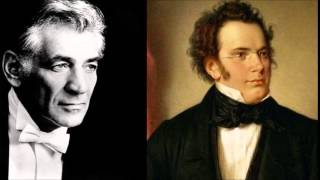Thursday, 15 January, 2026г.
















Где искать: по сайтам Запорожской области, статьи, видео ролики
пример: покупка автомобиля в Запорожье
Schubert - Overture Der vierjährige Posten D. 190
In May 1815 Schubert returned to the theatre with a version of the one-act Singspiel Die vierjährige Posten, D. 190 (The Four-Year Sentry Duty) by Theodor Körner, a young poet who had accompanied Spaun and Schubert to Gluck's Iphigenie auf Tauris, and shared their enthusiasm. Körner, house-dramatist at the Burgtheater, joined Lützow's Free Corps and was killed in August 1813 in a battle at Gadebusch near Mecklenburg. In Körner's comedy a French soldier, Duval, is left on sentry duty in a German village, when his regiment withdraws. He settles down, falling in love with the daughter of a local judge, but when, after four years, his regiment returns, he is in danger of being shot as a deserter. He avoids this fate by donning his old uniform and seeming to continue his sentry duty, claiming that he must be properly relieved before anything else. A kindly general eventually pardons him and all ends happily. The Overture opens in idyllic pastoral tranquillity, leading to a lively Allegro that also finds a place for a military element.
Performance by the Prague Sinfonia, conducted by Christian Benda
Теги:
Franz Schubert (Composer) Overture (Composition Type) prague sinfonia benda rosamunde 644 732 magic harp 190 franz peter schubert
Похожие видео
Мой аккаунт


 У вашего броузера проблема в совместимости с HTML5
У вашего броузера проблема в совместимости с HTML5


